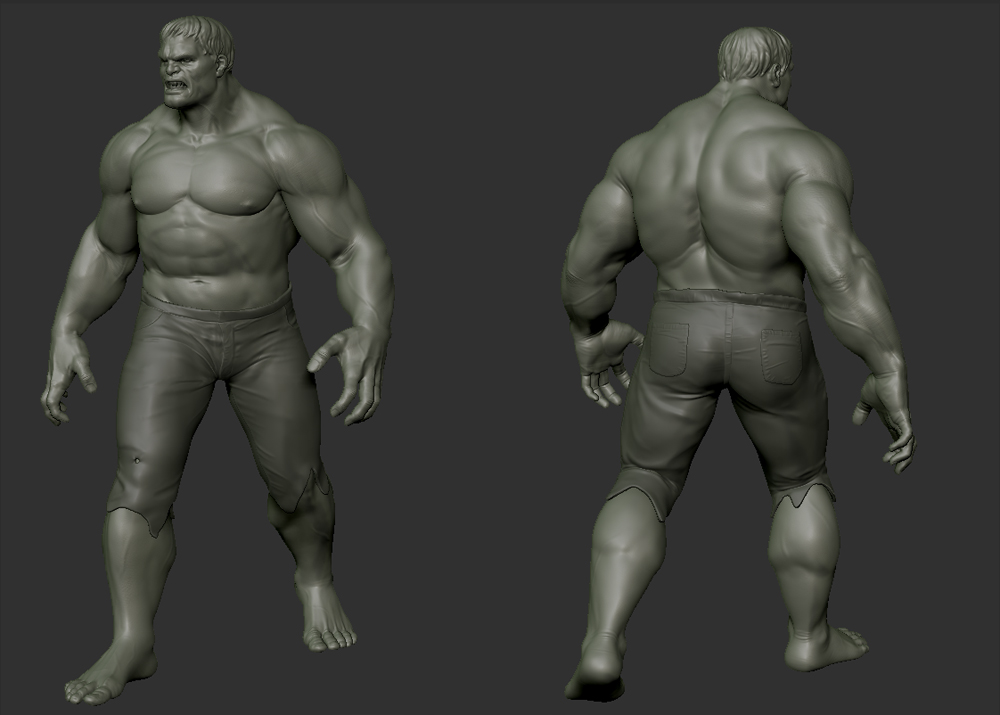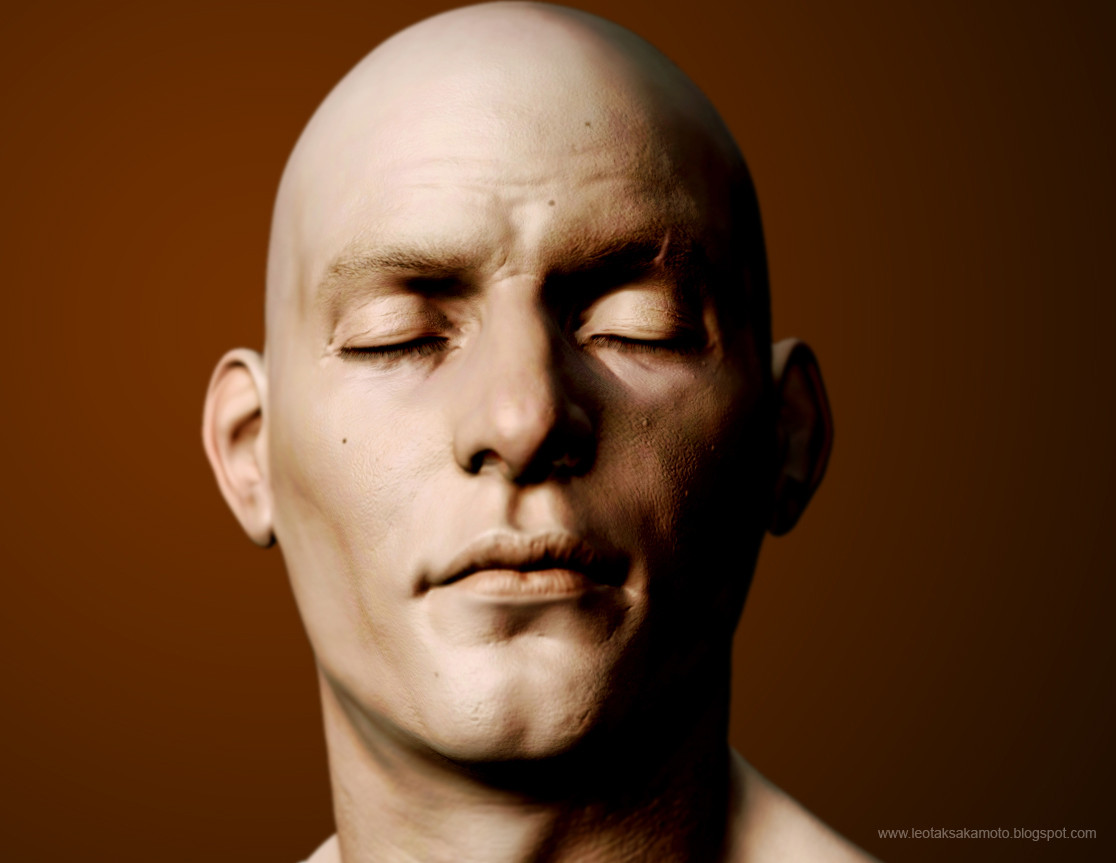Computer artists start by developing a hand drawing of a character, and places like ILM will sometimes create small clay figures as references.
These are then passed to the modeling artists who convert the concept into a digital character with high level of detail. This is often done with special digital clay sculpting software.
Here are some examples I found;

The face can be done digitally as well, and made to be very realistic.

Those images were taken from artists on the Pixologic community forum at http://www.zbrushcentral.com/forum.php
After digital sculpting is complete, the model is passed to Technical Directors who apply bones/muscles and controls. Also layers of visual effects can be added (smoke, fire, sparks, glowing things). This process is actually very complex and time consuming.
At this point the character has become what is called a "digital asset". It can move through the production pipeline to different departments. It might go back for more sculpting, go to the rendering departing for lighting, go to texture artists for painting, etc.. etc..
The animators will bring the character to life by key framing the motion. They work on shots and sequences assigned to them by a producer. They can acquire data from another department in the form of data files captured during motion capture sessions with an actor. While an actor might have performed motion capture sessions, an animator is still required to clean and apply the sequence to the character. A lot of people think motion capture makes things easier, but it doesn't. It's a challenge to work with.
You can read more about VFX processes at CGSociety. The Wrath of The Titans is a recent example.


